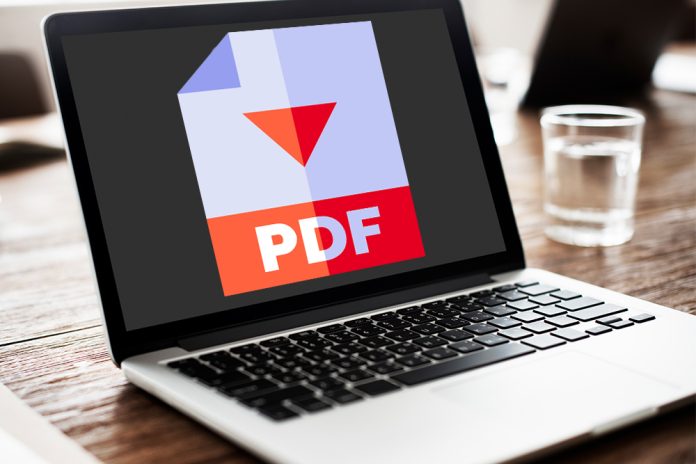Did you know that six out of ten Americans say they rely on email to do their jobs? If you regularly email clients and coworkers, you likely send PDFs and other important files often.
But is it possible for a PDF file to be too big to send? The answer is yes. The good news is that it’s possible to compress PDF files to save space. So when should you do this?
And how do you compress PDFs? If you want to know the answer to these questions and more, you’re in the right place. In this article, we’ll teach you everything you need to know about PDF file compression.
Table of Contents
How Much Space Do PDFs Usually Take Up?
The usual space that a PDF can take up varies widely from file to file. Factors like the number of pages, images included, and text size can all increase the file size.
However, according to the University of St. Thomas, the usual PDF file (one to five pages, web-optimized) comes in around 200 KB. So, when do you know if a PDF is too big?

A good indicator is whether or not you can email it. Most email platforms won’t allow you to email a file that’s over 20 MB. So, if your PDF is larger than this, and you need to email it, then you will need to make it smaller.
What Is a PDF File Made Of?
Before we learn more about PDF compression, it’s important to discuss exactly what they consist of. That way, you can understand which elements tend to take up the most space.
Many people think these file types just contain text and images. In reality, they contain multiple components, including:
- Content streams or the actual text found within the document
- Bookmarks
- Links
- Annotations
- Any embedded fonts
- Extended graphic states
- Strucutre information
- Images
- PDF form data
- File attachments
Any of these components can dramatically increase file size. That’s why PDF compression is typically needed when handling these documents.
What Causes PDF Files to Get Big?
There are a variety of reasons why your PDF file might be too large. However, unless it’s a huge document, it will typically boil down to two reasons.
First, you might accidentally have too one or two fonts embedded in the text. This might not seem like a big deal. But, the reality is that using a single font can increase the PDF file by as much as 600 KB.

If you want to prevent this problem in the future, consider editing text outside of Adobe Acrobat. The second culprit of a large PDF file is any images found in the document.
If the images are high resolution, they will take up a lot more space. Similarly, color images require more memory than black and white or greyscale ones.
When Should You Compress PDF Files?
Remember that compressing PDF files isn’t always needed. However, some circumstances call for it. First, if you need to email a PDF that’s over 20 MB, this is the most common reason.
It’s typically impossible to send these large files through email or any other social media platform. By reducing them to a smaller version, you can easily bypass the issue and send multiple large files.
This isn’t the only reason to consider compressing your data. A PDF file won’t take up much space on your PC by itself. However, if you have hundreds or even thousands of them, your smartphone will quickly fill up.
If you don’t use them, then you might want to consider deleting them. But, if deleting isn’t an option, you can always compress them.
This is a much more affordable solution than buying an external hard drive to support them. If space or emailing isn’t an issue for you, you don’t have to worry about PDF compression.
How to Compress PDF Files

The best way to reduce PDF size is to use a compression app. You can find both free and paid versions of these apps. Regardless of which one you choose, you should make sure that it fits your need and respects your privacy.
If you need a recommendation, consider PDF Squeezer. With this app, all you need to do is drop your file into the app. Then, it compresses the file almost instantly.
This option is nice because it gives you options when deciding how to make PDF smaller. You can choose between a light, medium, or high compression depending on how small you need it.
Alternatively, you can use a PDF editor to reduce certain components. For example, if you have a PDF with a lot of images, you can use an editor only to reduce images, not text.
Benefits of PDF Compression
You might think that the only benefit of PDF compression is the ability to send it through email. But, this is far from the only advantage. First, a compressed PDF is much quicker to download.
So, whoever you send the PDF to won’t have to wait minutes before opening it. They’ll also have easier access to any attachments included with the email. PDF compression is also better for collaboration.
With this model, you can easily send files. Then, the recipient can edit them and send them back quickly. Without compression, this would require lengthy upload times.
That means a simple task can take hours or even days. The last benefit of PDF compression is that it saves space on your computer.
Enjoy Learning About PDF Compression? Keep Reading
We hope this article helped you learn how to compress PDF files. No one likes getting the notification when a PDF is too large. But, as long as you have the right app resources compressing these files is quite straightforward.
Did you appreciate learning more about this topic? If the answer is yes, then keep exploring to find more content just like it.
